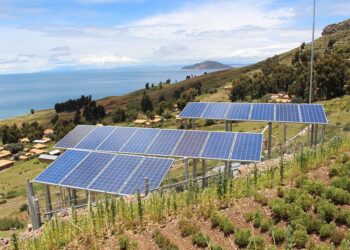Building a Greener Future: How Smart Homes are Revolutionizing Sustainability
In today’s world, the push for sustainability has never been more important. With climate change becoming an increasingly urgent issue, individuals and businesses alike are looking for ways to reduce their environmental impact and build a greener future. One key way that this is being achieved is through the use of smart home technology.
What are Smart Homes?
Smart homes are residences that are equipped with a range of devices and systems that can be controlled remotely or automatically. These devices are connected to the internet and can be controlled via a smartphone, tablet, or computer. Smart home technology includes everything from thermostats and lighting systems to security cameras and appliances.
How are Smart Homes Revolutionizing Sustainability?
Smart homes are revolutionizing sustainability in a number of ways. One of the key benefits of smart home technology is its ability to increase energy efficiency. By allowing homeowners to monitor and control their energy usage in real-time, smart home devices can help reduce energy consumption and lower utility bills. For example, smart thermostats can learn the habits of the household and adjust the temperature accordingly, saving energy when no one is home.
In addition to energy efficiency, smart homes can also help reduce water usage. Smart irrigation systems can adjust watering schedules based on weather conditions, soil moisture levels, and plant types, ensuring that water is not wasted. Smart plumbing systems can also help detect leaks and issues early, preventing water waste and water damage.
Key Benefits of Smart Homes for Sustainability
There are several key benefits of smart homes for sustainability:
1. Energy Efficiency
Smart homes can help reduce energy consumption by allowing homeowners to monitor and control their energy usage in real-time.
2. Water Conservation
Smart irrigation systems and plumbing systems can help reduce water usage and prevent water waste.
3. Waste Reduction
Smart appliances can help reduce food waste by alerting homeowners when items are about to expire.
4. Improved Indoor Air Quality
Smart HVAC systems can help improve indoor air quality by monitoring and filtering air pollutants.
Common Questions About Smart Homes
As smart home technology becomes more popular, there are some common questions that homeowners may have about implementing it in their own homes. Here are a few:
1. Are Smart Homes Expensive to Install?
While the initial cost of installing smart home technology can be high, the long-term savings on energy and utility bills can make it a worthwhile investment.
2. Is Smart Home Technology Secure?
Most smart home devices are equipped with encryption and security features to protect against hacking and unauthorized access.
3. Can Older Homes Be Retrofitted with Smart Technology?
Yes, older homes can be retrofitted with smart home technology. Many devices are designed to be easily installed and integrated into existing systems.
Conclusion
Smart homes are revolutionizing sustainability by increasing energy efficiency, reducing water usage, and improving overall environmental impact. By integrating smart home technology into our homes, we can build a greener future for generations to come. With the benefits of reduced energy consumption, water conservation, waste reduction, and improved indoor air quality, smart homes are a key component of a sustainable lifestyle. As technology continues to advance, smart homes will play an increasingly important role in helping us reduce our environmental footprint and create a more sustainable world.












